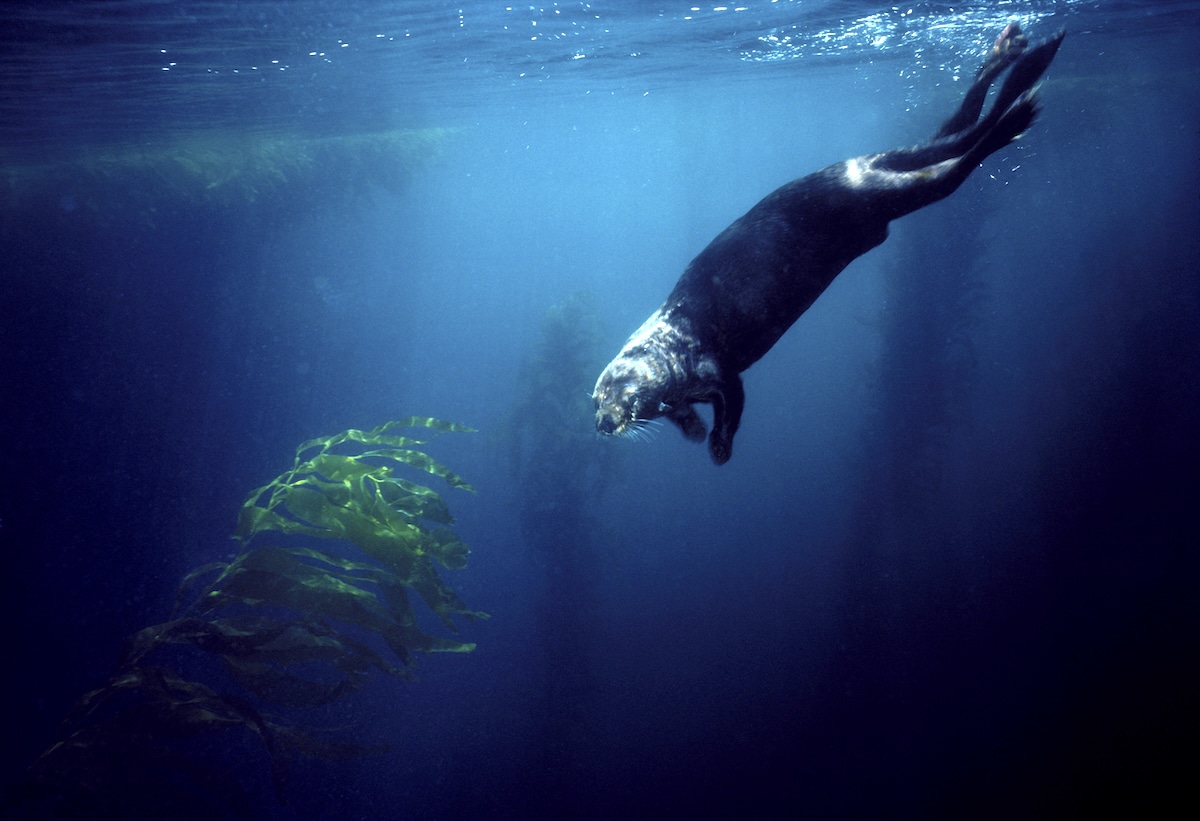Researchers at the Monterey Bay Aquarium in Monterey, California have linked sea otters to healthy kelp forests off the West Coast.
According to a new study published in the journal PLOS Climate, the recovery of Southern sea otters (Enhydra lutris nereis) in central California happened at the same time that kelp forests in the same region had significant increases from 1910 to 2016. At the same time, northern and southern California experienced kelp forest losses, and these were also areas where sea otters were heavily hunted nearly to extinction in the 1800s.
The major increases in kelp forests in central California, up 57.6% or 19.7 square kilometers, helped offset the dramatic kelp forests losses in other regions of the state. The study findings showed that northern California lost about 8.1 square kilometers of kelp forests, while southern California experienced an 18.3-square-kilometer decline.
As a whole, the state’s kelp forests spanned about 112 square kilometers in surveys from 2014 to 2016, down just slightly from the 120.4 square kilometers covered in 1910 to 1912.
The researchers noted that these findings could offer a nature-based solution that could help in the recovery of both native sea otters and coastal kelp forests.
“Our study showed that kelp forests are more extensive and resilient to climate change where sea otters have reoccupied the California coastline during the last century,” Teri Nicholson, lead author of the study and a senior research biologist with the Monterey Bay Aquarium’s Sea Otter Program, said in a press release. “Where sea otters are absent, kelp forests have declined dramatically. In fact, we found sea otter population density as the strongest predictor of change in kelp canopy coverage across this hundred-year span.”
Kelp forests are important habitats and food sources for a variety of marine life, so they are necessary in preserving biodiversity. As Pew Charitable Trusts reported, kelp can absorb about 20 times more carbon dioxide per acre than land forests, and kelp forests play an important role in mitigating coastal erosion.
But pollution, overharvesting and climate change are major threats to this vegetation, the National Oceanic and Atmospheric Administration (NOAA) reported. But a decline in sea otters can also mean that sea urchins can take over, and the urchins overgraze the kelp and leave behind “urchin barrens.”
The latest findings from Monterey Bay Aquarium researchers provides further evidence of the importance in maintaining sea otter populations for balanced ecosystems that allow the kelp forests to thrive, especially in the face of worsening threats, like rising ocean temperatures.
“Today, extreme heat in the ocean is intense and persistent. Beginning a decade ago, this threat now affects more than half the ocean’s surface,” said Kyle Van Houtan, senior author of the study and a research scientist at Duke University. “This is a major problem for kelp forests as chronic temperature stress undermines kelp growth and health. Ecosystems are complex, and to give them their best chance at surviving these extreme changes, they need all their component parts. Sea otters, of course, are hugely influential for Pacific kelp forests. Historical studies like this are a crucial demonstration of this dynamic over the long term.”
This article by Paige Bennett was first published by EcoWatch on 19 January 2024. Lead Image: A sea otter diving in a kelp forest in Monterey Bay, California. Francois Gohier / VW Pics / Universal Images Group via Getty Images.
What you can do
Help to save wildlife by donating as little as $1 – It only takes a minute.







Leave a Reply